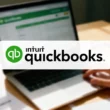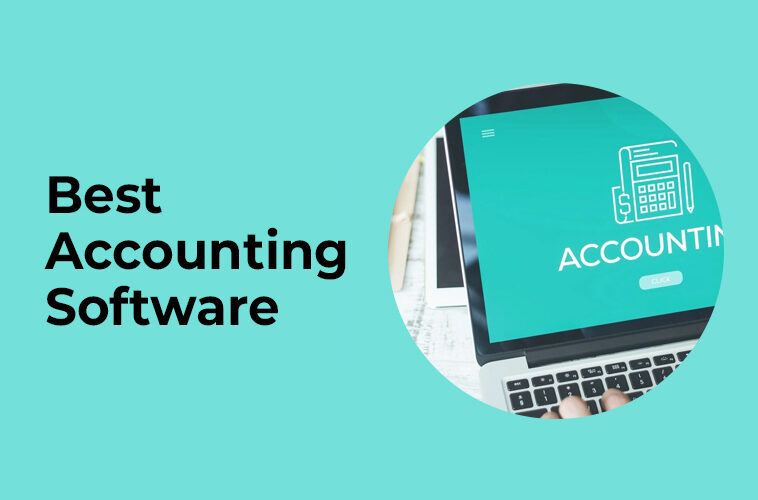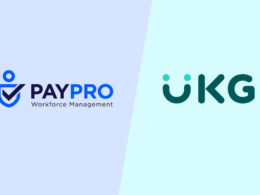Are you looking for the best accounting software to help manage your business finances? With so many options available, it can be hard to know which one is right for you. That’s why I’ve put together this comprehensive guide on the best accounting software for small businesses and enterprises.
In this post, I will cover all of the top features, pricing models, and more so that you can make an informed decision about what’s right for your company. Whether you need a simple solution or something with advanced features like automation.
Read on to learn more about my top picks – including Zoho Books, FreshBooks, Xero, and Intuit QuickBooks – as well as other great solutions like NetSuite, MarginEdge, and Sage Business Cloud Accounting.
So, let’s get started with the basics of accounting software –
What is Accounting Software?
Accounting software is a type of computer program that helps businesses to track and manage their finances. It can help people keep track of their income, expenses, profits, and losses in an easy way.
Accounting software has become increasingly important for small businesses in recent years. In times past, businesses had to rely on manual accounting, which was both time-consuming and error-prone.
Software specifically designed for Accounting automates financial tasks and transactions, creating a much more efficient system.
There are many different types of accounting software on the market today, but they all share some core features: it includes –
Core Features:
- Accounts Payable: Accounting software creates a comprehensive record of all the money your small business owes to vendors or creditors.
- Accounts Receivable: Conversely, accounting software tracks all the money that your small business is owed by customers or clients.
- Payroll: The software is typically equipped with payroll features that make it easy to calculate employee wages, taxes, and benefits.
- Financial Reporting: Perhaps most importantly, accounting software generates financial reports that help you understand the financial health of your business.
My Top Picks: Best Accounting Software for Small Businesses and Enterprises
There are plenty of free and premium accounting software options available in the market which may confuse you, and hence as a tech expert, I have researched and tested various accounting software options, and here are my top picks for small businesses and enterprises:
1. Zoho Books: Best Free Accounting Software
Zoho Books is the accounting software businesses have been looking for. With it, you can manage clients and invoices, send invoices, track expenses and mileage, create recurring invoices, reconcile accounts and generate reports.
It’s a comprehensive solution that covers your basic needs without downloading separate applications.
What sets Zoho Books apart from other software is its integrations. You can connect your bank account, payment processor, e-commerce platform and other services to get a real-time view of your finances.
Advanced features like project accounting and time tracking are also available with Zoho Books.
For businesses with annual revenue of less than $50,000 there’s the Zoho Books Free plan which gives one user access so they can take advantage of these powerful tools.
Whether you’re just starting out or need to upgrade your existing cloud-based accounting system, make sure you check out Zoho Books – it could be exactly what you’ve been looking for.
Pros and Cons
Pros
- Zoho Books offers a free forever plan.
- The low-cost paid plans start at just $15 per month and offer 5, 000 invoices.
- Ability to accept payments both offline and online.
- Track expenses and mileage.
- Manage 1099 contractors.
- Create recurring invoices.
- Zoho Books also integrates with other popular Zoho apps, making it easy to sync data across multiple applications in order to get a real-time view of your business’ finances.
Cons
- Limitations on the number of invoices that can be sent per year on certain plans, such as 1,000 per year on the basic plan.
- Payroll service cost extra.
Pricing Plans
Zoho Books is an online accounting software that offers multiple pricing plans to suit the needs of different businesses. The plans start with a FREE option, which is ideal for businesses with revenue of less than 50K USD per year.
The STANDARD plan costs $15 per organization per month, billed annually. It includes features such as invoicing, expense tracking, bank reconciliation, and project management.
The PROFESSIONAL plan, priced at $40 per organization per month, billed annually, includes features such as purchase order management, inventory tracking, and custom domain and branding.
The PREMIUM plan, priced at $60 per organization per month, billed annually, includes all the features of the Professional plan along with custom role-based access and multiple currencies.
The ELITE plan, priced at $120 per organization per month, billed annually, includes all the features of the Premium plan along with advanced analytics and automation features.
Finally, the ULTIMATE plan, priced at $240 per organization per month, billed annually, includes all the features of the Elite plan along with 24/7 customer support and a dedicated account manager.
2. FreshBooks: Best for Ease of Use
FreshBooks is a cloud-based accounting software aimed specifically for micro-businesses and self-employed individuals. It is an intuitive and easy-to-use software that offers a range of features to help businesses with their accounting needs.
One of the most notable features of FreshBooks is its simple and user-friendly interface. The layout is well-organized and easy to navigate, making it easy for even beginners to use.
The dashboard provides an overview of key financial metrics, including revenue, profit and expenses.
FreshBooks offers a range of time-saving features that can help businesses manage their financials efficiently. One of the most popular features is its invoicing tool, which allows users to create and send professional-looking invoices quickly and easily. The software also allows users to automatically send recurring invoices, which can save businesses valuable time.
In addition to invoicing, FreshBooks also offers expense tracking, time tracking, project management and reporting features. The time tracking tool is particularly useful for businesses that charge clients based on hourly rates.
The reporting functionality of FreshBooks is another notable feature. It allows users to create custom reports to track income, expenses, profit and other relevant metrics.
The software also provides income statements, balance sheets and other financial reports that can help users gain insight into their business performance.
Overall, FreshBooks is a solid choice for small businesses and self-employed individuals looking for an easy-to-use and comprehensive accounting solution. However, some users may find that it lacks more advanced accounting features, such as inventory management and advanced tax reporting.
Pros and Cons
Pros
- Simple and user-friendly interface
- Affordable plans starting at $15/month
- Unlimited expense tracking
- Unlimited estimates creation
- Various automated features
- Mobile apps available for iOS and Android
- Accountant invitation feature with most plans
Cons
- No document management feature
- No training provided
- Payroll not included (available as an add-on)
- Not suitable for businesses with a large number of clients as it has client limits
Pricing Plans
FreshBooks Lite is a pricing plan aimed at professionals who have basic financial needs.
For $8.50 per month, users can send unlimited invoices to up to 5 clients, track unlimited expenses, send unlimited estimates and get paid with credit cards and bank transfers.
It is perfect for freelancers, solopreneurs, and self-employed individuals who do not have a high volume of clients.
The most popular plan is FreshBooks Plus, which is designed for owners who are looking for more automation and insights. For $15 per month, users can send unlimited invoices to up to 50 clients and take advantage of automated expense tracking, recurring billing, and client retainers.
Plus plan also offers double-entry accounting reports, mobile mileage tracking, and business health reports.
Additionally, users can invite their accountant to collaborate on their financials.
It is ideal for small businesses and startups that have grown beyond a handful of clients.
FreshBooks Premium is the most inclusive pricing plan. For growing businesses that want to empower their employees, this plan comes with all the features offered in the Plus plan along with other advanced tools.
For $27.50 per month, users can send unlimited invoices to an unlimited amount of clients, track bills, bill payments, and vendors with accounts payable. Moreover, it helps users to track project profitability, customize email templates with dynamic fields, and email signatures.
This plan offers automated features such as late payment reminders and bill late fees, auto-tracking of expenses, and unlimited estimates and proposals.
Additionally, users can get paid through multiple channels, including credit cards, bank transfers, and checkout links. They can also set up recurring billing and client retainers to save time.
The Premium plan also offers users financial and accounting reports, business health reports and mobile mileage tracking. Users can invite their accountant to work on their financials, which can streamline accounting tasks.
FreshBooks Premium is ideal for medium-sized businesses that have a growing customer base and require advanced financial reporting tools.
3. Xero: Best Accounting Software for Enterprises
Xero Accounting Software is a top-of-the-line financial management software that has earned a reputation as one of the premier software options available to businesses today.
It is a cloud-based accounting tool, so you and your team can access your data and manage your tasks from anywhere, whether you’re in the office, at home or on the go.
One of the biggest advantages of Xero is its user interface, which is intuitive and easy to navigate. The platform is user-friendly, with a clean design and helpful prompts that guide you through each step of the process.
Xero also offers an impressive array of features, including invoicing, expense tracking, inventory management, payroll processing, and bank reconciliation.
Another great feature of Xero is its robust reporting and analytics tools. Users can generate detailed reports on their financial performance, track income and expenses, and monitor their cash flow.
The platform also integrates seamlessly with other applications, such as PayPal, Stripe, and Shopify, making it easy to manage all your business financials in one place.
Overall, XERO Accounting software is an excellent choice for businesses looking for a premium cloud-based accounting solution.
Pros and Cons
Pros
- Xero offers a variety of plans to fit your business’s needs as it grows.
- The software has an intuitive and user-friendly interface.
- The lowest-priced plan allows you to send up to 20 quotes and invoices per month.
- All plans allow you to reconcile your bank transactions.
- Xero provides 24/7 support to assist with any questions or concerns.
Cons
- To deal in multiple currencies, you need Xero’s highest-tiered plan.
- Payroll is available but costs an extra $40 per month with any plan.
Pricing Plans
Xero offers three different pricing plans, each designed to meet the specific accounting needs of businesses at different stages of growth.
- Early: At $13 per month, the Early plan is ideal for sole traders, new businesses, and the self-employed who need essential accounting functionality. This plan includes basic features such as sending quotes and 20 invoices, entering 5 bills, reconciling bank transactions, capturing bills and receipts with Hubdoc, and using multiple currencies. Users can also track projects, claim expenses as well as receive short-term cash flow and business snapshot all while bulk reconciling transactions.
- Growing: Xero’s most popular plan is Growing, which costs $37 per month. This plan is perfect for small businesses with growing accounting needs. It includes all the features of the Early plan, but you can send unlimited invoices and enter unlimited bills. Additionally, you can reconcile bank transactions in bulk, capture bills and receipts with Hubdoc and track projects. This plan also allows you to use multiple currencies and to claim expenses. It provides short-term cash flow and business snapshot, which are essential for small businesses.
- Established: This plan is designed for established businesses that need more advanced accounting capabilities. The Established plan costs $70 a month, and it includes all the features that the Early and Growing plans offer. Additional features include the ability to view in-depth analytics, manage expenses and make payments to your employees using the payroll function. The customizable dashboard lets you keep control of the revenue and expenditure, along with asset management, fixed asset depreciation, plus reporting, and tracking facilities.
All plans can be canceled with one month’s notice, and all come with 24/7 online support. However, note that if you need to use multiple currencies, you must upgrade to the highest-tiered plan. Additionally, it also provides an additional payroll with Gusto add-on at an extra $40 per month.
4. Intuit QuickBooks: Best for Small Businesses
QuickBooks is an accounting software that was developed by Intuit. It is a well-known software that has been around for many years and has been used by millions of businesses.
QuickBooks offers a range of features that make it easy for businesses to manage their finances, from tracking expenses to generating invoices and managing payroll.
One of the biggest advantages of QuickBooks is its user-friendly interface that makes it easy to learn. (Check out detailed guide to understand how difficult Is QuickBooks to Learn)
The software is very simple to use and has a well-designed dashboard with clear navigation links that make it easy to access all the features.
Besides that, QuickBooks offers a mobile app, which allows you to access your financial information from your mobile device.
One of the standout features of QuickBooks is its invoicing capabilities. The software allows you to generate professional-looking invoices in a matter of minutes. You can also set up recurring invoices and payment reminders to ensure that you get paid on time.
Moreover, QuickBooks can be integrated with payment gateways, such as PayPal and credit card processors, which enables you to receive payments directly from customers.
QuickBooks also offers features such as expense tracking, bank reconciliation, and inventory management. These features enable you to keep track of your business expenses and manage your inventory in real-time.
Furthermore, QuickBooks has robust payroll functionalities that help businesses manage their employee payroll. It ensures compliance with state and federal tax regulations, pays employees on time and calculates tax withholdings automatically.
Pros and Cons
Pros
- Comprehensive accounting software
- Provides phone support
- Ability to track mileage
- Easy access via mobile app
- Integrates with other software and apps
Cons
- Payroll features require an additional cost
- Pricing doubles after the introductory period ends
- Potential for accidentally duplicating transactions
- Lacks e-commerce capabilities
Pricing Plans
Quickbooks offers a range of plans that cater to businesses of different sizes and budgets. Their plans range from Simple Start to Advanced.
The Simple Start plan is priced at $15/month and provides basic features such as tracking income and expenses, invoicing, tax deductions, receipt capture, and mileage tracking. It also lets you connect to one sales channel.
The Essentials plan is priced at $27.50/month and offers all the features of Simple Start in addition to enhanced reports, connection to three sales channels, and allows up to three users. It also includes bill management and time entry.
The Plus plan is priced at $42.50/month and is the most popular plan because it includes features such as inventory management, project profitability, and connection to all sales channels. It also allows up to 5 users and includes bill management, time entry, and comprehensive reports.
The Advanced plan is priced at $100/month and offers all the features of Plus with additional features such as workflow automation, data restoration, customized access, and on-demand training. It also has exclusive premium apps, dedicated account team, and more than five users.
It’s important to note that QuickBooks offers a 30-day free trial for all plans, and customers can buy now and get 50% off for 3 months plus free expert setup help. However, the pricing for all plans doubles after the introductory period. Additionally, payroll features require an additional cost which is not included in any of the plans.
5. Sage Business Cloud Accounting: Best for Micro-Businesses
Are you a small business owner looking for reliable accounting software? Look no further than Sage Accounting.
This innovative software, available for businesses of all sizes, offers a suite of features that simplify accounting tasks, including tracking income and expenses in multiple currencies, payroll management, and more.
Sage Accounting is also user-friendly, making it an excellent choice for businesses that may not have a dedicated bookkeeping team.
With its cloud-based functionality, Sage Accounting is accessible from anywhere with an internet connection, making it the perfect solution for businesses with remote employees or multiple locations.
But don’t just take my word for it – Forbes recently gave Sage Accounting a glowing review, noting its intuitive interface, robust features, and affordable pricing. So why wait? Upgrade your accounting game today with Sage Accounting.
Pros and Cons
Pros
- Cloud-based software
- Wide range of integrations available
- Automated bank reconciliation
- Multiple currency support
Cons
- Basic entry-level plan may not suit established businesses
- Payroll management features not included
- Limited availability of phone support during certain hours.
Pricing Plans
Sage Accounting software offers two pricing plans to cater to different business needs.
The first plan is Sage Accounting Start, which is an entry-level accounting software ideal for self-employed individuals and micro-businesses. This plan is priced at $10 per month and includes essential features such as invoicing, tracking payments, automatic bank reconciliation and is suitable for one user.
The second plan, which is the most popular, is Sage Accounting. This powerful cloud accounting software is designed for small businesses and includes more advanced features such as unlimited users, forecasting cash flow, purchase invoice management, and more.
Previously priced at $25 a month, Sage Accounting is now available at a discounted price of $7.50 per month, which is a saving of $105.
Additionally, Sage Accounting offers a 3-month free trial of AutoEntry, which enables customers to snap receipts for easy recording of expenses. The Sage Accounting plan is suitable for businesses looking for comprehensive accounting features.
How does Accounting Software Work?
Accounting software plays a crucial role in the accounting process by automating manual tasks, reducing human error, and providing an accurate representation of a business’s financial state. It streamlines financial management processes such as creating invoices, managing accounts payable and receivable, tracking expenses, and generating financial reports, among other things.
Most accounting software functions similarly. Users enter their financial information into the application where the software processes and sorts it into the appropriate categories.
The software can automatically calculate financial metrics like taxes, profits, and losses which eliminates time-consuming and laborious calculations.
In addition to automation, accounting software offers several other features that are beneficial to its users. These include generating financial reports and statements, automating account reconciliations, tracking inventory, including payroll, automatic invoicing, payment reminders, and payment processing, among others.
Data transfer is done with various methods such as importing, exporting and database synchronization.
Accounting software also offers user authentication, ensuring that only authorized users can access the software. User authentication is done via usernames and passwords, biometric authentication such as fingerprints, and two-factor authentication.
In brief, modern accounting software has been equipped with the latest technologies and features to streamline complex accounting processes effortlessly and error-free.
Benefits of Accounting Software
1. Streamlined Processes
Accounting software can help you streamline your financial processes. It provides a single location to record financial transactions, generate invoices, track expenses, reconcile accounts, and create financial reports. This can save you time and increase productivity.
2. Reduces errors
Manual accounting processes can be prone to errors, which can be costly and time-consuming to correct. Accounting software can help reduce errors by providing automated calculations and data validation checks.
3. Increases accuracy
Accounting software can improve financial accuracy by keeping track of financial transactions in real-time. This provides a current and accurate snapshot of your financial position, including cash flow, profit and loss, and balance sheet.
4. Enhances data security
Accounting software provides data security measures to protect financial information from unauthorized access, such as data encryption and secure backups. It also allows you to control user access to financial data, limiting users to only the data they need to access.
5. Provides financial reporting
Accounting software allows you to create financial reports such as profit and loss statements, balance sheets, and cash flow statements quickly and easily. These reports provide valuable insights into your financial performance, allowing you to make informed business decisions.
6. Simplifies tax compliance
Accounting software can help simplify tax compliance by automating the process of calculating, collecting, and remitting taxes. It can also generate tax-related reports and provide alerts for upcoming tax deadlines.
7. Facilitates collaboration
Accounting software can help improve collaboration and communication between team members, such as accountants, bookkeepers, and financial planners. It provides a central location to access financial data, reducing the risk of miscommunication or errors.
Overall, accounting software can be a valuable tool for businesses of all sizes. It can help you save time, reduce errors, and improve financial accuracy, providing valuable insights into your financial performance and facilitating compliance with tax regulations.
How to Choose the Right Accounting Software for Your Business?
As a business owner, selecting the right accounting software is crucial to managing your finances accurately and efficiently. With so many options on the market, it can be overwhelming to make a decision. This guide will help you identify key factors to consider when selecting accounting software.
Determine the Size, Nature, and Budget of Your Business
Before you begin evaluating accounting software options, it’s essential to understand the size, nature, and budget of your business.
Consider the following questions:
- How many employees do you have?
- What type of industry are you in?
- What is your budget for accounting software?
These answers will help you narrow down your options and select software that is a good fit for your business.
Important Features to Consider
When researching the best accounting software options, consider the following features to ensure you select software that meets your business needs:
- Invoicing and billing features
- Financial reporting and analysis capabilities
- Bank account and credit card integration
- Inventory tracking and management
- Payroll processing
- Tax preparation features
- Mobile Accessibility
By prioritizing your business needs and selecting software that offers these features, you can streamline your accounting processes and improve financial accuracy.
Ease of Use
The usability of accounting software is essential, especially if you do not have a dedicated finance team. When selecting software, look for intuitive interfaces, simple navigation, and user-friendly dashboards.
Demo or trial versions are a great way to test the software’s ease of use and determine if it’s a good fit for your team.
Compatibility with Your System
When selecting accounting software, ensure it is compatible with your existing system to avoid any integration issues. Determine how the software will integrate with your current systems, including your POS system, bank accounts, and credit card accounts.
Pricing Options and Technical Support
There are various pricing options available for accounting software, including subscription-based pricing, one-time payments, and freemium models.
Consider the long-term cost of the software, including any upgrades or additional features you may need in the future.
Additionally, evaluate the level of technical support available, including customer service availability, troubleshooting options, and community forums.
Overall, selecting the right software for accountants can streamline your financial processes and improve accuracy, saving you time and money.
Consider the above factors to make an informed decision and select software that meets the specific needs of your business.
Accounting Software FAQs
Two great options for small business accounting software are Zoho Books and FreshBooks.
Zoho Books offers all the essential features you need to manage your finances, including invoicing, expense tracking, account reconciliation and report generation.
While FreshBooks is an excellent choice for those without an accounting background, with easy-to-use features for invoice creation and sending, expense tracking, project and client management, and report viewing.
Neat is an ideal accounting software for self-employed entrepreneurs who seek an affordable and uncomplicated solution. It is the simplest of its kind, with user-friendly features that allow for ease of use.
Yes, accounting software is generally secure. Most accounting software employs various security measures to ensure that users’ financial information is safe and secure. These measures may include data encryption, firewalls, multi-factor authentication, and routine security updates.
Yes, accounting software can be very beneficial for small businesses. It can simplify your financial management processes, save you time and prevent errors. It provides a central location for financial data, allowing you to easily track your income and expenses, manage your invoicing and payments, reconcile your bank accounts and generate financial reports.
Additionally, accounting software can help you stay compliant with tax laws and regulations.
Yes, there are several free accounting software options available. Some popular ones include: Zoho Books, NCH, Kashoo, Sunrise, ZipBooks, GnuCash, Wave Accounting. It’s important to note that while these software options are free, they may have limitations in terms of functionality or support.
QuickBooks by Intuit is currently the most popular accounting software in the USA, with over 2.2 million subscribers. Quickbooks is widely used by small to medium-sized businesses, banks, freelancers and accountants due to its user-friendly interface, comprehensive features, and integrations with other software. Other popular accounting software options in the USA include Xero, FreshBooks, and Sage.
Wrapping it up…
Choosing the best accounting software for your business can be a daunting task. I hope that this article has provided you with some helpful information on what to look for when selecting an accounting solution, as well as introduced you to several popular options available today.
Whether you are looking for something simple or more sophisticated, there’s sure to be an option out there that meets your needs and budget!








